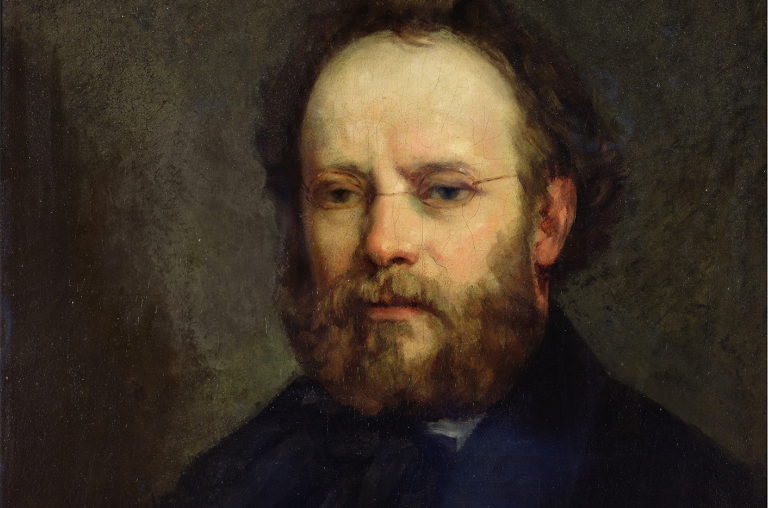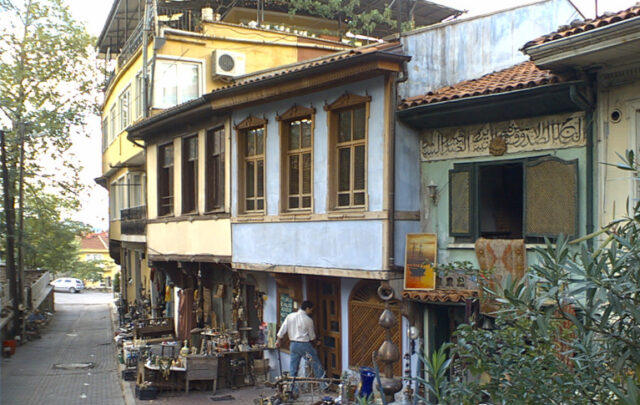Lots of people don’t know what Mutualism* is or why a person who opposes Capitalism and the State would choose it instead of Communism or Democratic Socialism. While there are many great resources out there, this essay will explain some of the basics at a high level. So what is Mutualism? Buckle up.
What is Mutualism?
Mutualism is a radically decentralized market-based form of socialism. In a mutualist economy, corporations do not exist, businesses are owned collectively by the people who work in them, and public services (water, power, internet, etc) are owned by the communities they serve. And, of course, any person who wants to work for themselves and be a collective of one is free to do so.
Both businesses and public services are run democratically by the workers based on peer management, just as millions of already-existing worker-owned cooperatives do. In the case of public services, the community being served decides what to do and the workers decide how to do it. In fact, American Mutualists were the early drivers of the movement for worker-owned cooperative businesses and the success of those businesses – which consistently pay better wages, have better conditions, and give more back to the community – is a validation of Mutualist praxis. Millions of working class people have better lives because of this legacy.
Because there are no bosses or shareholders, workers can pay themselves the full value that their labor produces. As Connolly put it “profits are the unpaid wages of the working class.” In mutualism, the systematic theft of surplus value by capitalists, is ended.
Instead of being reliant on Capitalists for start up capital for new businesses, Mutualists have traditionally relied on credit unions – Proudhon actually invented the first Credit unions and other Mutualists refined the idea considerably from there. In fact, the prevalence of Credit Unions in North America (where Mutualism has traditionally been strongest) is one legacy of mutualism. You’ll notice that many of the largest credit unions are owned by labor unions, and that’s not a coincidence.
Unlike most modern credit unions though, the original idea was that worker’s and artisans could pool their funds and provide financing to start new worker owned businesses – or to buy and convert existing ones. In this way, early mutualists hoped to literally buy the means of production from the capitalists and supplant them, without ever needing to fire a shot or spill a drop of blood.
Like all forms of Libertarian Socialism, a mutualist economy does not have a system of copyrighting technology – like the land and the world’s natural resources, the accumulated knowledge of humankind is part of what Kropotkin called the “common heritage of humanity” and belongs to everyone. In essence, all technology is open sourced.
Because Mutualism is market based, supply and demand mechanisms determine what is produced – there is no need for central planners as there would be in a communist economy. But these supply and demand mechanisms are designed to take the whole cost – including the ecological cost – of manufacturing into the cost equation, something Capitalists and Statists socialism have both failed to do. And, unlike capitalism, the supply and demand mechanism in a mutualist economy is not subject to constant manipulation by the State or by Corporations because neither exists.
Now personally, I think it’s valuable to bring in some elements of Anarcho-syndicalism. I love the idea of industry-wide worker-run and directly democratic labor organizations that handle training and certification, establish best practices and safety guidelines, and train people on new technology as it is developed. These syndicates can also provide dedicated funding for scientists and researchers working to advance their fields, and act as sponsors for the credit unions that provide financing for new businesses and public works.
But is it Socialism?
Now some people hear the word “market” and will immediately jump to “that’s not Socialism!” because decades of cold war propaganda have conditioned American’s to think Socialism means “government does stuff.” This is, to put it bluntly, stupid.
In point of fact, Mutualism predates both Marxism and Anarcho-communism and is one of the oldest schools of Socialism. The core principles were developed by Proudhon, who invented “Anarchism” as an ideology. Anarcho-Communism came later as Bakunin & Kropotkin tried to graft Marx’s “pure communism” onto Proudhon’s ideal of a society freed from the State, while rejecting Marx’s authoritarian theory of change. And, of course, Benjamin Tucker – an American mutualist – was a founding member of the First International, the first global socialist organization (Proudhon was invited to join by Marx, but rejected him because he wanted nothing to do with Marx’s authoritarian version of socialism. And yes, this caused beef.. but that’s another story). So yes, Mutualists are socialists and have been part of the global socialist movement since before Marx. Deal with it.
So why Mutualism and not Communism?
Without a State to plan the economy, Communism doesn’t scale. Most tribal societies across history practiced some version of what Marx called “primitive Communism.” What Marx and the early communists missed was the concept of social currency.
There’s a whole tangent about how incredibly racist and inherently imperialist Hegel and Marx’s dialectical view of history is. Indigenous people are not less “advanced” than industrial capitalist or Marxist societies that destroy the earth and render the vast majority slaves. Dialectics are inherently eurocentric and racist as a way of understanding history because they assume forward progress and that European forms of economy and governance were more advanced.
Back to the concept of social currency, in anthropological terms a social currency is not a physical currency that is exchanged. It’s the way people in small societies based on mutual aid – whether tribes or villages – keep track of who helps and who is a freeloader. Freeloaders may be tolerated in the short term, but they will rapidly be encouraged to contribute to the general welfare. Those who do not respond to polite hints will find the reminders get more forceful. Eventually culminating in eviction and exile. (Note that in most tribal gift economies that aren’t facing extreme scarcity, disabled people and the elderly are not treated as freeloaders and are cared for and contribute as they are able.). But this sort of social currency, which is required in order to make the gift economies of so-called “primitive” communism work, is only possible in small communities where everyone knows each other and can easily mentally track who contributes what. The moment you scale up to towns or cities, gift economies break down.
Physical currency, voting, chieftains, kings, and States all fill that void in various ways. While you can’t easily track your social currency exchange with the million other people in your city, a person can track that exchange with an elected official, king, or a government. In other words, the concept of Legitimacy in government is essentially a type of social currency. A “legitimate” system of governance is one where the majority perceives the maintenance costs (including taxes and obligations) as being worth it for the security or services they receive.
The only scenario where social currency stops being necessary is in a post-scarcity economy. Kropotkin & the other early anarchist communists believed we were rapidly approaching post-scarcity. The Conquest of Bread essentially argued that once we got there stateless Communism would be the natural result.
Now Kropotkin was a very smart guy and got a lot of things right – his work on mutual aid as a principle in evolution is essential reading – but he was wrong to believe a post-scarcity society is actually possible. We live on a finite planet so there will always be scarcity – especially since animal populations expand in situations of abundance until there is scarcity again. Look at human population growth since the green revolution. So we’ll never achieve full post-scarcity. And the moment you have scarcity, you need trade. And the moment you have trade, you have a market. Having a market means you have currency. It doesn’t have to be a state-backed currency, but it will exist, even if it’s just cowry shells. This is why markets, whether formal or informal, have been a critical part of every attempt at creating a planned economy in history.
Planned economies and the State
Imagine you work in a train factory. Unless you manufacture every part of the train in-house, you need parts from other manufacturers. Those supply chains get long and complex. In Mutualism, supply and demand solves this. In Communism, someone has to map and plan the whole thing. And if you have some hobbyist who walks into the supplier and takes a bunch of critical parts for something unrelated because there’s no supply and demand in anarchocommunism and everyone takes what they want, your whole factory is sitting idle, the trains don’t get delivered, and entire cities come to a halt.
You simply cannot have an industrial society without a control mechanism on who takes what when.
These issues weren’t a problem in the artisan-based economy (where people built everything in-house) that existed when Kropotkin was writing. They are critical now.
Communism in a modern economy requires a planned economy, which means a State in fact if not name. Every version of Statist Socialism with a planned economy that has been tried resulted in scarcity for the majority and privilege for the party elite. That’s not just corruption, it’s the fact that planning an economy is an incredibly difficult thing to get right and even small errors can have unforeseen ripple effects that result in mass starvation.
Even in Anarchism, it’s a serious problem. For example, AnarchoSyndicalism turns this planning over to workers councils. But a workers council that plans the economy & decides who will get what where when quickly turns into a technocracy, an economic dictatorship even less accountable than a liberal democratic State because the society at large has no mechanism to question their decisions. In other words, the only way to make Communism scale in a finite society is to introduce central planning, which means re-inventing the State and creating an economic dictatorship. Communism is therefore inherently authoritarian.
So if you want stateless socialism in a world where trade, currency, & markets will always exist (and they will – including in every ostensibly “communist” country in history), the only real option is mutualism – not communism. And that is why, after decades of study, I gradually moved away from AnarchoCommunism and Syndicalism and became a mutualist.
*The word mutualism also refers to a principle in evolutionary biology where two or more organisms interact in a way that benefits them both. This seems entirely appropriate to me.
Teaser photo credit: Pierre-Joseph Proudhon, the first self-called anarchist and the primary proponent of mutualism which influenced many individualist and social anarchist thinkers. By Gustave Courbet – 1. FineArtPrintsOnDemand.com2. The Bridgeman Art Library, Object 88479, Public Domain, https://commons.wikimedia.org/w/index.php?curid=6635978





